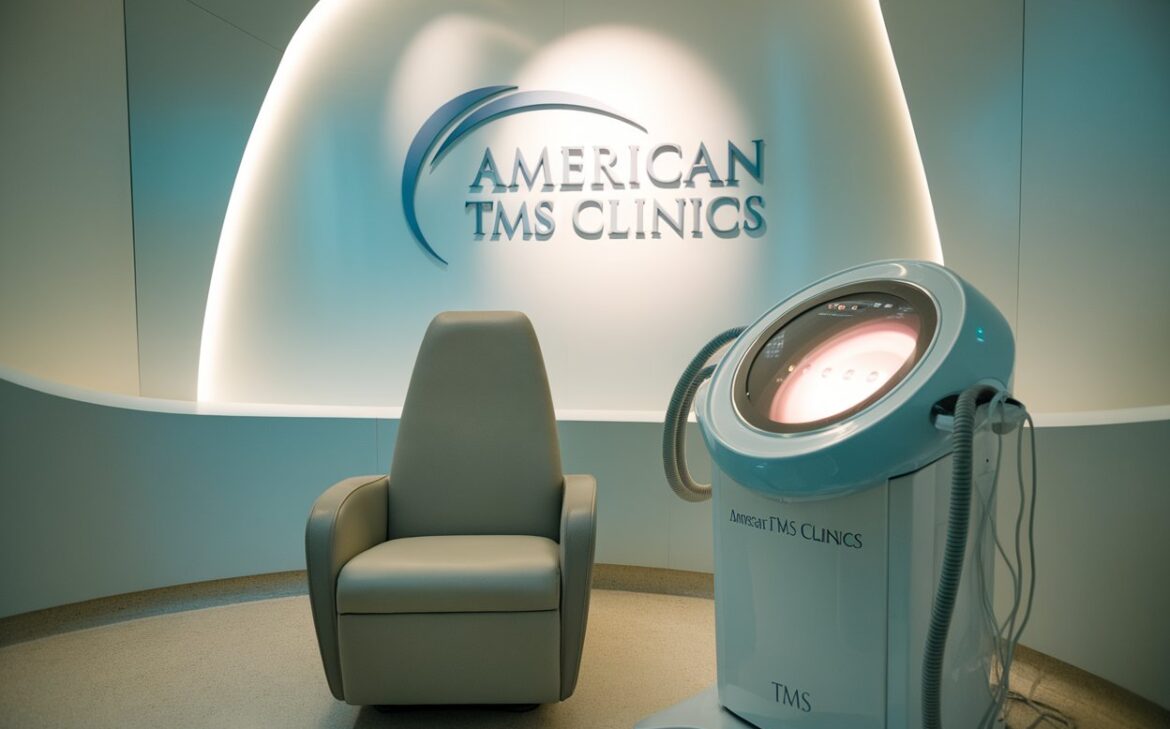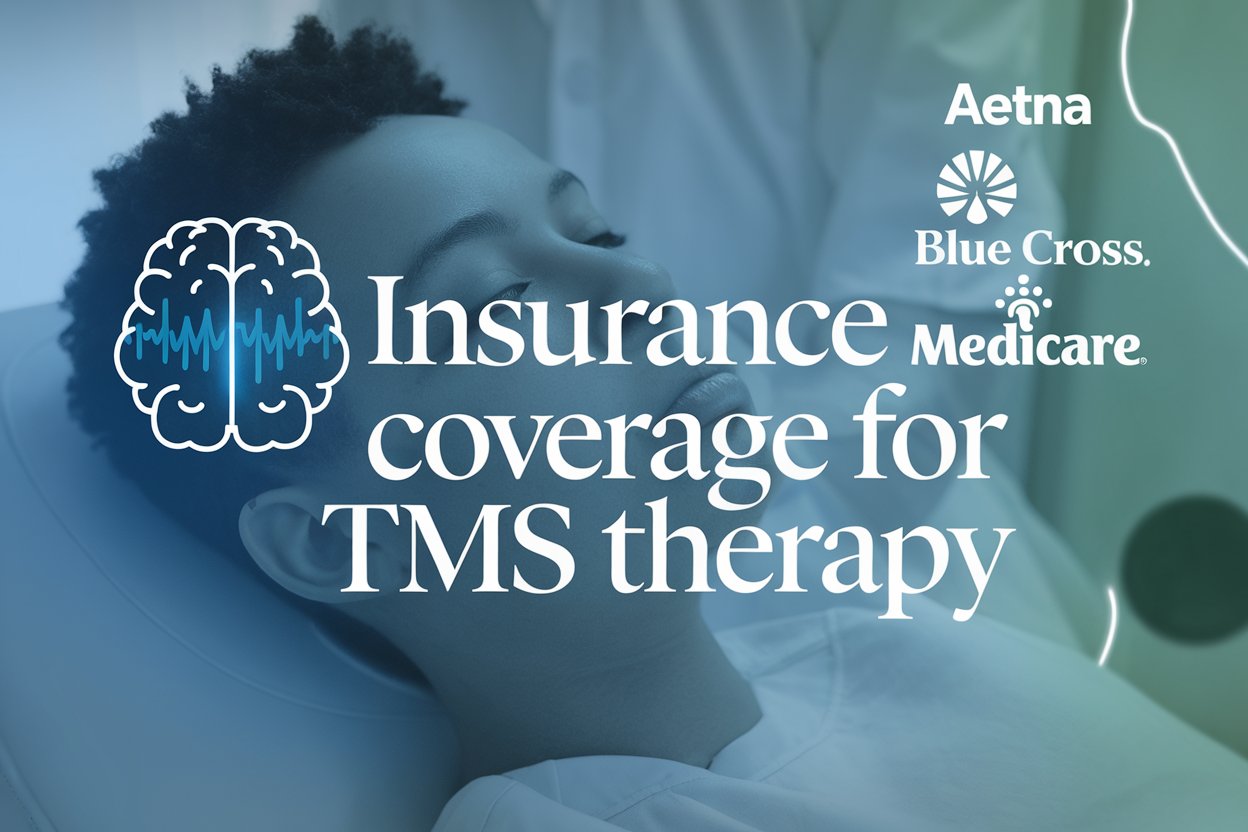If you’re wondering, “Where can I get TMS therapy?”, you’re not alone. Transcranial Magnetic Stimulation (TMS) therapy has become an increasingly popular treatment for depression, especially for those who haven’t found relief through medication or talk therapy. TMS is a noninvasive treatment that uses magnetic pulses to stimulate parts of the brain, and it’s proven effective for many people. Finding the right provider is a crucial step in your treatment journey. In this guide, we will walk you through how to find TMS therapy near you.
What is TMS Therapy?
TMS therapy uses electromagnetic pulses to target areas of the brain that are underactive in individuals with mental health conditions, like depression. The magnetic pulses are delivered through a coil placed on the scalp, and the treatment is carried out in a clinical setting.
The procedure is safe and noninvasive, meaning there is no need for surgery or anesthesia. A typical TMS session lasts between 30 to 60 minutes, and the therapy often requires daily sessions over several weeks.
Why You Might Need TMS Therapy
People often seek TMS therapy when traditional treatments, like antidepressants, haven’t been effective. TMS can help improve symptoms of depression, obsessive-compulsive disorder (OCD), and even smoking addiction. If you’ve tried other treatments without success, TMS may offer hope.
Where Can I Get TMS Therapy?
The question of where can I get TMS therapy depends on a few factors: your location, insurance coverage, and the availability of qualified TMS providers near you. Below, we provide a few methods to help you locate a TMS provider.
1. Search Online for TMS Providers
One of the easiest ways to find a TMS provider is to conduct an online search. You can type phrases like “TMS therapy near me” or “TMS treatment centers nearby” into a search engine. Many clinics and hospitals offer TMS, and they often have detailed websites that explain their services.
There are also online directories that list TMS providers, which can help you narrow down your options. Websites such as Psychology Today or TMS locator tools often provide a list of clinics that offer TMS.
2. Use TMS Locator Tools
Specialized TMS locator tools are available online to help you find a provider close to you. Some websites, like the American Psychiatric Association, have TMS locator tools that allow you to enter your zip code and see a list of nearby clinics.
These tools can also provide helpful details such as contact information, clinic hours, and whether they offer specific types of TMS, like Deep TMS.
3. Talk to Your Doctor or Mental Health Specialist
Another effective way to find a TMS provider is by talking to your doctor or mental health specialist. They can recommend local providers who are experienced with TMS therapy and who are trustworthy. In addition, they may help you understand whether TMS is right for you based on your medical history.
4. Check With Your Insurance Provider
Many health insurance providers cover TMS therapy, especially if you’ve already tried other treatments. Contact your insurance company to ask for a list of in-network TMS providers. This will help ensure that your treatment is covered and reduce your out-of-pocket costs.
5. Visit Hospitals and Specialized Mental Health Clinics
TMS therapy is offered at many hospitals and specialized mental health clinics. Larger hospitals and academic medical centers often provide TMS therapy, especially those known for their mental health programs. Specialized mental health clinics, which focus solely on treating conditions like depression and anxiety, are also good places to check.
Factors to Consider When Choosing a TMS Provider
When deciding where to get TMS therapy, it’s important to consider several factors:
- Experience and Credentials: Choose a provider with extensive experience in administering TMS therapy.
- Convenience: Since TMS requires multiple sessions per week, finding a provider close to home or work can make the treatment process easier.
- Insurance Coverage: Verify if the provider accepts your insurance and whether your insurance covers TMS therapy.
- Additional Services: Some clinics may offer other services that can complement TMS, such as counseling or medication management.
What to Expect During Your First Visit
Once you’ve found a clinic and scheduled your appointment, it’s helpful to know what to expect. During your first visit, the healthcare professional will evaluate your medical history to determine if TMS is the right treatment for you. They will also take measurements to ensure the TMS coil is positioned correctly.
You’ll sit comfortably in a chair during the session, and the coil will be placed over your head to send magnetic pulses to the targeted area of your brain. The treatment itself is painless, although some patients feel a tapping sensation.
Types of TMS Therapy Available
There are two main types of TMS therapy: Traditional TMS and Deep TMS. Understanding the difference can help you decide where to get your treatment.
- Traditional TMS: Uses a figure-eight-shaped coil to deliver electromagnetic pulses to the brain. It requires precise placement and may require more sessions.
- Deep TMS (dTMS): Uses an H-coil inside a cushioned helmet to target deeper areas of the brain. This type is known for its broader stimulation and is often considered more effective.
Not all clinics offer both types, so it’s good to ask beforehand which type they provide.
Is TMS Covered by Insurance?
If you’re wondering whether TMS therapy is covered by insurance, the answer is often yes. Many insurance companies cover TMS, especially for patients with treatment-resistant depression. However, some policies may require proof that other forms of treatment were unsuccessful.
To avoid unexpected costs, contact your insurance provider to confirm your coverage. They can also help you find in-network clinics, making it easier to decide where you can get TMS therapy.
Alternative Options if TMS Is Not Available
If TMS therapy isn’t available in your area or isn’t the right fit for you, there are other treatment options to consider:
- Medication: Antidepressants and mood stabilizers are the first line of treatment for many people with depression.
- Psychotherapy: Cognitive Behavioral Therapy (CBT) and other forms of talk therapy can help manage symptoms of depression and anxiety.
- Lifestyle Changes: Exercise, a balanced diet, and mindfulness practices can support mental health and help alleviate symptoms.
Questions to Ask When Choosing a TMS Provider
Here are some questions you may want to ask potential TMS providers to help make your decision easier:
- How many years of experience do you have with TMS therapy?
- What type of TMS do you offer: Traditional or Deep TMS?
- Are you covered by my insurance plan?
- How soon can I start treatment?
- What are the expected side effects, and how are they managed?
Summary: Where Can I Get TMS Therapy?
Finding the answer to where can I get TMS therapy doesn’t have to be a complicated process. Start by searching online, using TMS locator tools, talking to your doctor, and contacting your insurance provider. Consider factors like experience, convenience, and insurance coverage when selecting a provider.
Whether you choose a local mental health clinic, a specialized hospital, or a TMS center, the right provider can make a significant difference in your treatment journey. If TMS isn’t available or isn’t the right option for you, other treatments like medication, therapy, or lifestyle changes can also help.
Taking the first step toward finding TMS therapy is a courageous move, and with the right provider, you can find the help you need to start feeling better.
Get TMS Therapy at American TMS Clinics
If you’re ready to explore TMS therapy, American TMS Clinics can help. We offer safe, effective treatment for depression and other conditions. Take the first step toward a better tomorrow—visit American TMS Clinics today to learn more and schedule your consultation.





